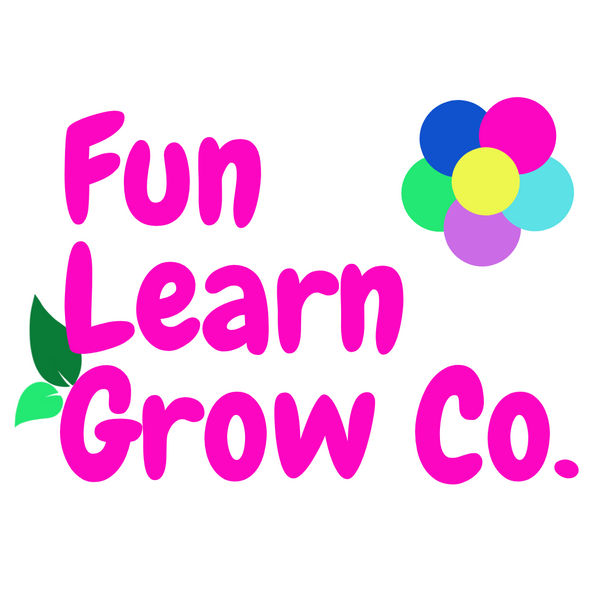Fostering Connections- and what does it have to do with play?
The importance of play in fostering connections between parents, siblings, loved ones, and children is a key component in overall development of our children in early childhood.
The role of play in strengthening parent-child bonds and nurturing relationships.
As I have worked in the childcare setting (as well as have 4 kids of my own) and discussed with many childcare professionals, I have discovered firsthand the transformative power of play in fostering deep connections between parents and children, as well as its profound impact on overall development during the crucial early years of childhood.
Play is not just a pastime; it is the primary language of children, through which they explore, learn, and make sense of the world around them. When parents actively engage in play with their children, they create precious opportunities for bonding, communication, and shared experiences that lay the foundation for strong, loving relationships.
Through play, parents and children engage in reciprocal interactions that promote emotional attachment and responsiveness. Whether it's building blocks together, role-playing imaginary scenarios, or simply sharing laughter during a game of peek-a-boo, these playful moments foster a sense of connection and trust between parent and child.
Moreover, play serves as a vehicle for holistic development, encompassing physical, cognitive, social, and emotional domains. When children engage in open-ended, imaginative play with their parents, they are actively constructing knowledge, developing problem-solving skills, and honing their creativity. From sorting shapes to building forts, each playful activity presents opportunities for learning and growth.
Additionally, play provides a safe space for children to express themselves, regulate their emotions, and develop essential social skills. Through pretend play, children learn to take on different roles, negotiate with others, and resolve conflicts, laying the groundwork for healthy social interactions and empathy.
Early childhood professionals find it their duty to empower parents with the knowledge and tools to harness the power of play in nurturing their child's development. By encouraging parents to prioritize quality playtime, providing guidance on age-appropriate activities, and emphasizing the importance of being fully present and engaged during play, we can support parents in fostering meaningful connections with their children and laying the groundwork for a lifetime of learning and growth.
In essence, play is not just a luxury; it is a fundamental human right and a cornerstone of early childhood development. By recognizing and embracing the importance of play in family life, parents can cultivate strong bonds with their children and provide them with the rich, supportive environment they need to thrive.
Incorporating Play Everyday
As a parent of four kids and a play advocate, I'm always on the lookout for ways to make learning fun and meaningful for my little ones. Incorporating educational play into our daily routines, when our kids were younger, has been a game-changer for us, not only in enhancing their learning but also in strengthening our connection as a family. 💖
Here are some tips and suggestions that have worked wonders for us:
-
Turn Everyday Activities Into Learning Opportunities: Whether it's cooking together in the kitchen, sorting laundry, or tidying up toys, we find ways to turn mundane tasks into playful learning experiences. Counting, sorting, categorizing – the possibilities are endless!
-
Follow Their Lead: Children are naturally curious and eager to explore the world around them. Instead of dictating playtime, I let my kids take the lead (see our other blog post about leading or supporting play with your child) and follow their interests. Whether it's building with blocks, exploring nature, or playing dress-up, I'm always amazed at the creativity and imagination they bring to the table.
-
Get Creative With Materials: You don't need fancy toys to spark learning – everyday household items can be just as engaging! From cardboard boxes and paper towel rolls to pots and pans, we get creative with materials and let our imaginations run wild.
-
Incorporate Storytelling and Imaginative Play: Storytelling is a powerful tool for nurturing language development and sparking imagination. We love creating our own stories, acting them out with puppets or toys, and letting our imaginations soar.
-
Make Learning Multisensory: Engaging multiple senses enhances learning and retention. We incorporate sensory experiences like finger painting, sensory bins, and sensory playdough into our routine to make learning hands-on and interactive.
-
Celebrate Curiosity and Exploration: Above all, we celebrate curiosity and exploration in our household. We encourage questions, embrace mistakes as learning opportunities, and foster a love of learning that extends beyond the confines of traditional education.
Educational play isn't just about teaching our kids facts and figures – it's about instilling a love of learning, nurturing their natural curiosity, and building strong connections as a family. So, let's get playful and embark on this exciting learning journey together!
Grab our Sensory Play Idea Recipes here, to enjoy fostering connections with your young learners! We are excited to see what a difference it makes in your relationship with your child!
In conclusion, the importance of play is crucial to fostering connections and instilling a love of learning in our kids. We hope you have fun, learn and grow with your child through many meaningful connections!

